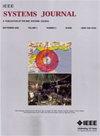Asynchronous Observer-Based Fault-Tolerant Optimal Control of Multiagent Systems
IF 4
3区 计算机科学
Q1 COMPUTER SCIENCE, INFORMATION SYSTEMS
引用次数: 0
Abstract
In this article, the optimal consensus problem for a class of nonlinear multiagent systems in discrete-time case is investigated under jump faults and false data injection (FDI) attacks. First, a general fault model with coefficients obeying a semi-Markov process is introduced into system dynamics. A joint state and fault observer based on the hidden semi-Markov model is designed to estimate both the agent's state and the fault signals. Sufficient conditions for the existence of observer gains are established by constructing the stochastic Lyapunov function with hidden mode, observed mode, and elapsed time dependencies. Based on the observed states, we reconstruct the local performance metric functions of agents and design a policy-value iteration algorithm to address the multiplayer game problem. Then, an neural network policy-value iteration approximation algorithm is proposed, which obtains an approximate Nash equilibrium solution of the multiplayer games. Further, a secure fault-tolerant optimal consensus controller with fault compensation and attack attenuation terms is designed to achieve optimal tracking control, and the stability of the neighbor tracking error system is rigorously demonstrated. Finally, illustrative example and comparison simulations are provided to verify the validity and applicability of the proposed results.基于异步观测器的多代理系统容错优化控制
本文研究了离散时间情况下一类非线性多代理系统在跳跃故障和虚假数据注入(FDI)攻击下的最优共识问题。首先,在系统动力学中引入了系数服从半马尔可夫过程的一般故障模型。设计了一个基于隐藏半马尔可夫模型的状态和故障联合观测器,以估计代理的状态和故障信号。通过构建具有隐藏模式、观测模式和经过时间相关性的随机 Lyapunov 函数,建立了观测器增益存在的充分条件。根据观察到的状态,我们重构了代理的局部性能指标函数,并设计了一种策略值迭代算法来解决多人博弈问题。然后,提出了一种神经网络策略值迭代近似算法,该算法可获得多人博弈的近似纳什均衡解。此外,还设计了一种带有故障补偿和攻击衰减项的安全容错最优共识控制器,以实现最优跟踪控制,并严格证明了邻域跟踪误差系统的稳定性。最后,还提供了示例和对比模拟,以验证所提结果的有效性和适用性。
本文章由计算机程序翻译,如有差异,请以英文原文为准。
求助全文
约1分钟内获得全文
求助全文
来源期刊

IEEE Systems Journal
工程技术-电信学
CiteScore
9.80
自引率
6.80%
发文量
572
审稿时长
4.9 months
期刊介绍:
This publication provides a systems-level, focused forum for application-oriented manuscripts that address complex systems and system-of-systems of national and global significance. It intends to encourage and facilitate cooperation and interaction among IEEE Societies with systems-level and systems engineering interest, and to attract non-IEEE contributors and readers from around the globe. Our IEEE Systems Council job is to address issues in new ways that are not solvable in the domains of the existing IEEE or other societies or global organizations. These problems do not fit within traditional hierarchical boundaries. For example, disaster response such as that triggered by Hurricane Katrina, tsunamis, or current volcanic eruptions is not solvable by pure engineering solutions. We need to think about changing and enlarging the paradigm to include systems issues.
 求助内容:
求助内容: 应助结果提醒方式:
应助结果提醒方式:


